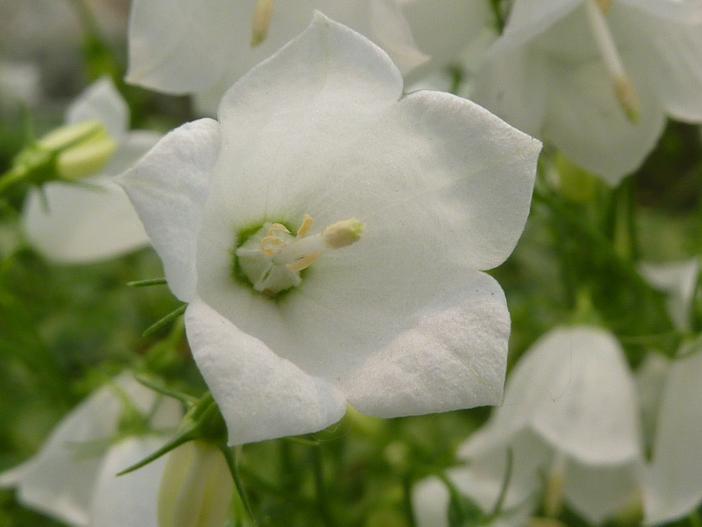Broad-Leaved Fritillary
(Fritillaria crassifolia)
Broad-Leaved Fritillary (Fritillaria crassifolia)
/
/

Magnus Manske
CC BY-SA 3.0
Image By:
Magnus Manske
Recorded By:
Copyright:
CC BY-SA 3.0
Copyright Notice:
Photo by: Magnus Manske | License Type: CC BY-SA 3.0 | License URL: https://creativecommons.org/licenses/by-sa/3.0 | Uploader: Magnus Manske | Publisher: Wikipedia Commons







Estimated Native Range
Summary
Fritillaria crassifolia, commonly known as the broad-leaved fritillary, is a perennial herbaceous bulb plant native to rocky slopes and scrubland in the Middle East, including Iran, Iraq, Turkey, Syria, and Lebanon. It is particularly adapted to the rocky subalpine and alpine zones. This species typically grows to a height of 10-30 centimeters with a similar width. The plant features glaucous, broadly lanceolate leaves that are arranged in a rosette at the base. It blooms in the spring, producing solitary, bell-shaped flowers that are usually a striking purple or greenish-purple, with a waxy texture and are quite showy. The flowers are followed by a fruit capsule containing seeds.
Fritillaria crassifolia is valued for its unique, attractive flowers and is often used in rock gardens, alpine collections, and as a specimen plant in botanical gardens. It requires well-drained soil, preferably with a high gravel content to mimic its native rocky habitats. It thrives in full sun to part shade and needs moderate watering, particularly during the growing season. Overwatering or poor drainage can lead to bulb rot. While not widely cultivated, it can be propagated by seed or bulb offsets. Gardeners should be aware that Fritillaria species can be susceptible to lily beetle infestations.CC BY-SA 4.0
Fritillaria crassifolia is valued for its unique, attractive flowers and is often used in rock gardens, alpine collections, and as a specimen plant in botanical gardens. It requires well-drained soil, preferably with a high gravel content to mimic its native rocky habitats. It thrives in full sun to part shade and needs moderate watering, particularly during the growing season. Overwatering or poor drainage can lead to bulb rot. While not widely cultivated, it can be propagated by seed or bulb offsets. Gardeners should be aware that Fritillaria species can be susceptible to lily beetle infestations.CC BY-SA 4.0
Plant Description
- Plant Type: Herb, Bulb
- Height: 0.5-1 feet
- Width: 0.5-1 feet
- Growth Rate: Slow
- Flower Color: Green, Purple
- Flowering Season: Spring
- Leaf Retention: Deciduous
Growth Requirements
- Sun: Full Sun, Part Shade
- Water: Low
- Drainage: Medium, Fast
Common Uses
Border Plant, Low Maintenance, Rock Garden
Natural Habitat
Rocky slopes and scrubland, particularly in subalpine and alpine zones in the Middle East
Other Names
Common Names:
Scientific Names: , Fritillaria crassifolia,
GBIF Accepted Name: